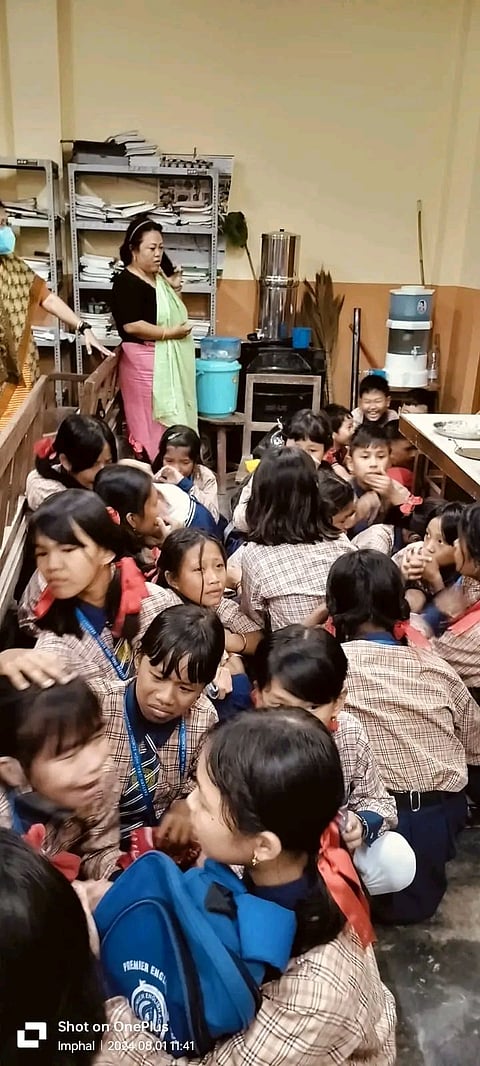

Today, Thursday, August 1, Manipur witnessed another wave of unrest as Internally Displaced Persons (IDPs) staged protests in relief camps. This led to a violent confrontation between protesters and security forces near school campuses where the authorities fired tear gas, rubber bullets and smoke bombs.
The aggressive clampdown reportedly caused serious disruption and chaos among school children.
The incident drew sharp reactions on social media. One X (@VickuSingh9) posted, “How can u use tear gas near schools & during IDP protest? Imagine ur own children in that environment - how traumatised must these kids be? And show some empathy & consider the sentiments of the IDPs. The way u r handling their protest is unacceptable.” (sic)
The clashes took place in Imphal East district, specifically at a relief camp at Ideal Girl College in Akampat. The IDPs were demanding an end to the ongoing ethnic violence so they could return home.
“The conditions at the Akampat Relief Camp in Manipur are horrifying. The people (IDPs) there are living in terrible and inhumane conditions. They deserve to live with dignity and respect, which is their right as citizens and human beings. It is shocking that in a powerful nation like #India, a state #Manipur is suffering from such severe neglect. What will it take to give these people back their dignity and respect?” pointed out another X user (@RajshreeKeisham).
The protest involved over 100 IDPs and escalated as they clashed with security forces. Nearby, classes were in session, and the police's use of smoke bombs and tear gas created panic among students. Reports indicate that several students fainted, prompting the schools to shut down abruptly and parents to rush to retrieve their children.
The excessive use of force to disperse the rally drew widespread condemnation, particularly for disrupting the educational environment and instilling fear among children, which may have lasting psychological effects.
This incident is part of over 400 days of unrest in Manipur, which began in May last year due to ethnic violence between the majority Meitei tribe and the minority Kuki tribe over the Meitei community's inclusion in the Scheduled Tribes (STs) list.
